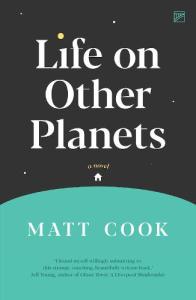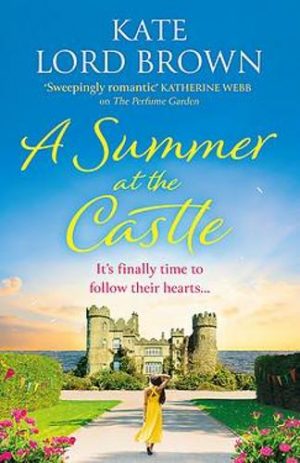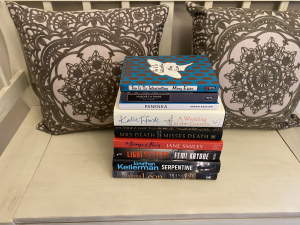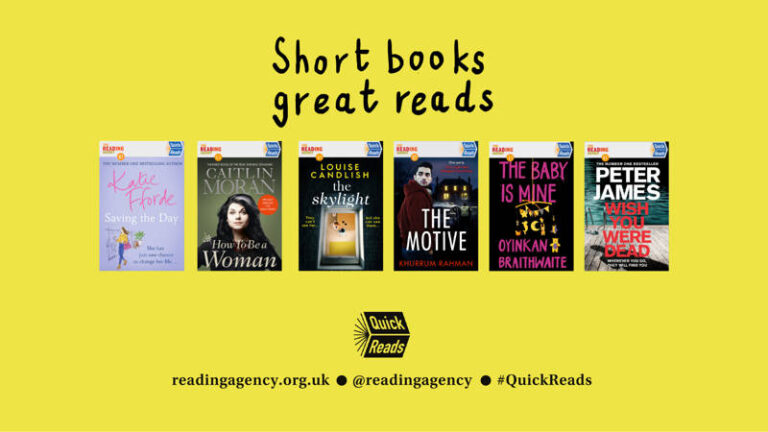Matt kindly answered a few of my questions.

4. Is there anything about the process of publishing a book that surprised you?
7. I like to end my Q&As with the same question so here we go. During all the Q&As and interviews you’ve done what question have you not been asked that you wish had been asked – and what’s the answer?
It was supposed to be simple: grieve, junk, funeral, home. But from the side-lines, Ben can see the cracks starting to show. When the search for a will goes off-beam, the Carters find themselves under siege by the property they all crave. Alone in the house together, the Carters’ lives lock into something unrecognisable and their pursuit of Aunt Pearl’s not-quite-worldly goods entirely consumes them.
3. Are you a plan, plan, plan writer or do you sit down and see where the words take you?
Matt Cook is the author of Life on Other Planets is published by Lendal Press on 10 June 2021.
It’s painfully literal. I was part of a family crew tasked with clearing the house of my great aunt after she died. She was a hoarder and a spiritualist, though I was in my late 30s (not 14). It was a very odd process, unpicking the fabric of her life and seeing how much she lived through the weird pseudo gurus who wrote to her relentlessly. We were digging and digging looking for paperwork and the stranger it got the more I thought ‘This feels like I’m in a weird novel.’ Then I thought ‘I should write that weird novel!’ Everything beyond that is pure fiction, cultivated and extrapolated from that nub.
It is 1997. To himself, Benjamin Carter is a thing drifted somehow out of its orbit. With the news that Great Aunt Pearl is dead, his summer is looking like yet another non-starter. There’s his summons to the clearance of her ramshackle house. His dad’s awkward pep talks. A toxic cocktail of over-zealous aunts and uncles. And then there’s the Church of the Holy Heavens―the space cult that’s been wooing Pearl for all she’s worth.
1. Tell us a little about Life on Other Planets.
When I just started to write and allow the story to lead me, the narrative began to cohere and a book finally emerged. It was much like the book I wanted to write, but different in a number of critical ways that I could never have foreseen. I had to learn a lot about my process and the kind of writing that interested me. It turned out I was a lot less interested in straight up storytelling and a lot more interested in the weird liminal spaces that exist within a family dynamic. The unspoken rules of engagement: not the notional rules of engagement that are depicted in countless books and films, where characters have clear motivations and goals. These ground-rules for drama felt more and more unreal and unhelpful to me. Throughout the writing process (which was around 3-4 years and juggled around the arrival of two kids) I started taking inspiration from completely new sources. At the beginning I was reading Ian McEwan and Margaret Atwood as reference. By the end I was reading Joy Williams, Ben Marcus, Tom McCarthy, M John Harrison. This changed my intentions a lot.
About the Book
Pearl was a hoarder and spiritualist and the Carters’ devise a simple plan – to clear the house, find her will, have the funeral and go home, all in the space of a long weekend staying in the house. But when they can’t find the will, and discover evidence implying it was changed so a space cult inherited the house instead of them, things begin to go wrong. They are absorbed into a kind of otherworldly meltdown. It gets weird and nasty.
When I was fourteen, my family had a nervous breakdown…
Confronting the darker forces concealed beneath the trifling disputes and sore spots of life after death, this blackly comic book is storytelling under siege. Hilarious and unsettling by turns, Life on Other Planets unravels the mysteries of a family irreparably divided by alienation, entitlement and loss.
Life on Other Planets is a black comedy about a family who have a collective nervous breakdown after the death of an elderly relative – their Great Aunt Pearl.
As Ben comes face-to-face with death, a new person emerges: curious, uninhibited, free-falling. In Life on Other Planets, Matt Cook has created a startling portrait of a young man caught between trying to live his life and trying to run from it. Comedies of English manners have rarely been darker.
This will sound like a cop out, but I think it would be Infinite Jest. It’s a book I can climb into on any page and find something new and fascinating. It’s not a book I would want to read from cover to cover again, it’s more of a reference manual. You can isolate and focus on so many different components, all of which open up pathways in my brain in interesting ways. I think it’s a bit like choosing a spouse. They don’t have to be perfect, but they do have to be someone you can never get bored with. I could dip into Infinite Jest every day for the rest of my life and I know I wouldn’t get bored once.
2. What inspired the book?
5. What do you do when you aren’t writing? What do you do to relax and get away from it all?
I am at the start of the whole promotional process so I haven’t been asked many questions yet. There’s nothing I’m hoping to be asked, but lots of things I’m afraid of being asked. Each time I reread a section I see something that I want to change and get a kind of micro-panic attack about someone asking me to defend it. I suppose the thing I’m most excited about discussing with strangers is the family dynamic of the Carters and the ways they all orbit each other. I’ve tried to describe a way of being and relating to family throughout the book that I’ve not really seen explained or addressed in other contexts. There are lots of ‘dysfunctional family’ stories, but the Carters are very much functional at the outset. They are entirely unprepared for what befalls them: an opportunity to stare directly into the dark heart of themselves as a collective entity. The book’s structure is entropic, so if somebody spots that and refers to it in a question I’ll be very happy indeed!
I want to be a plan, plan, plan writer and I feel like I should be, but I’m not. I have about 14 or 15 documents on my computer – created over at least a year – where I attempted to create a detailed structure I could follow. I also have an A3 spider diagram I created to do the same, and photos of an A2 pin board covered in scraps of notes. All efforts to give myself a map, and all failures in that objective.
The main plot is narrated in recollection by Benjamin Carter, who was 14 at the time. I sometimes describe it as an anti-coming of age story.
I like cycling and watching movies, and reading obviously, but I have two young children so ‘relaxing’ and ‘getting away from it all’ are not words you hear often in our house, except as sarcastic jokes.
6. If you could only read one book for the rest of your life which book would it be?
Yes, everything. I understand the process quite well, I know a few authors and my father-in-law publishes photography books. So in theory there should have been no surprises. But actually, being the focus of it all, was really odd. A dream scenario in one sense, but I didn’t anticipate my own emotional reactions being so strong. Finalising editorial decisions, discussing cover designs, preparing for events; it all ended up inspiring a lot more neurosis than I expected.







